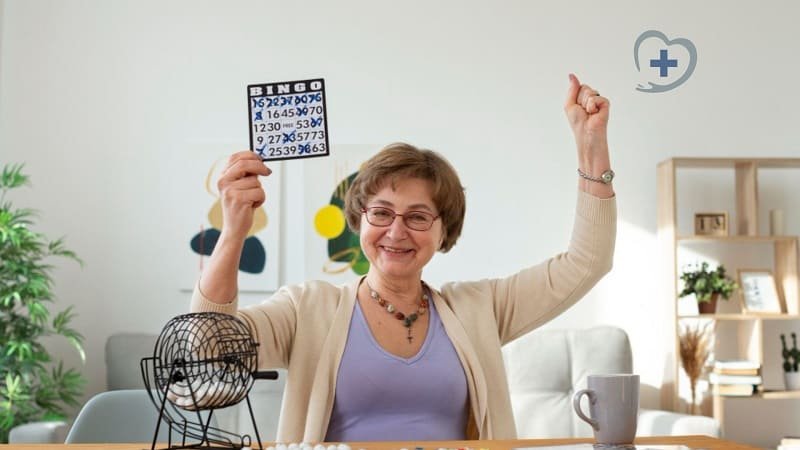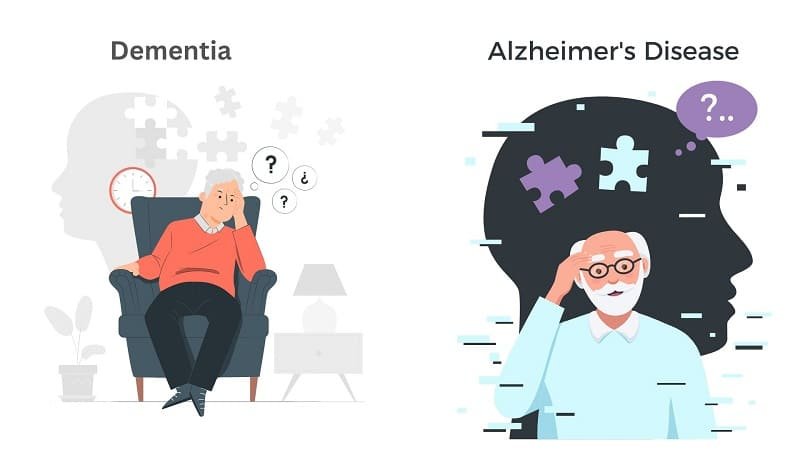Introduction:
Alzheimer’s disease is a challenging condition that affects memory, cognition, and overall mental well-being. Engaging in regular mental exercises is a proactive approach to slow down cognitive decline and enhance the quality of life for individuals with Alzheimer’s. In this guide, we will explore effective mental exercises specifically designed to support Alzheimer’s patients, focusing on the importance of incorporating these activities into their daily routines.
Understanding the Importance of Mental Exercises for Alzheimer's Patients
Alzheimer’s disease progressively impacts cognitive functions, making mental exercises a crucial component of managing its effects. The goal is to stimulate the brain, promote neuroplasticity, and maintain cognitive abilities for as long as possible. Here are 15 targeted mental exercises tailored for Alzheimer’s patients:
Memory Match Game: This classic memory game is a fantastic way to boost cognitive function and concentration. Create a set of cards with matching pairs of images or symbols. Place the cards face down and encourage the Alzheimer’s patient to flip them over, trying to find matching pairs by memory. As the game progresses, it challenges short-term memory and promotes focus.
Word Association Challenge: Engage Alzheimer’s patients in a word association game. Begin with a word, and encourage them to respond with the first word that comes to mind. This game stimulates language centers in the brain and enhances verbal communication skills. Choose words related to personal experiences or familiar objects to make the game more meaningful.
Nature Walk Bingo: Take Alzheimer’s patients on a nature walk and provide them with Bingo cards featuring images of common objects found in nature, such as birds, flowers, or trees. As they spot each item, they can mark it on their Bingo card. This outdoor activity not only stimulates the senses but also promotes a sense of accomplishment and connection with the environment.
Jigsaw Puzzle Challenge: Jigsaw puzzles are excellent for promoting problem-solving skills and enhancing cognitive abilities. Choose puzzles with varying difficulty levels and work together with the Alzheimer’s patient to complete them. The sense of achievement upon completing a puzzle can boost morale and provide a sense of accomplishment.
Digital Memory Games: Explore Alzheimer’s-friendly apps and games designed for smartphones or tablets. Games like “Mind Games” or “Elevate” offer a variety of mental exercises, including memory challenges, logic puzzles, and language games. These digital activities can be personalized to cater to individual preferences and skill levels.
Artistic Expression with “Draw Your Memory”: Encourage Alzheimer’s patients to express themselves through art with the “Draw Your Memory” game. Provide art supplies and ask them to illustrate a memory or a scene from their past. This creative activity not only stimulates the brain but also provides an emotional outlet for self-expression.
Discussion Group with “Story Sharing Circle”: Facilitate a discussion group where Alzheimer’s patients can share their stories and memories. Use prompts or themes related to their lives, encouraging them to recall and articulate their experiences. This social interaction not only promotes cognitive engagement but also fosters a sense of community and connection.
Cooking Adventure with “Recipe Recall”: Engage Alzheimer’s patients in a cooking activity by playing “Recipe Recall.” Choose simple recipes and guide them through the cooking process. This multi-sensory experience involves following instructions, measuring ingredients, and coordinating various tasks, providing a holistic mental workout.
Numerical Challenge with “Mathematical Mind Teasers”: Introduce mathematical mind teasers that involve numerical challenges. This can include activities like counting, simple calculations, or solving number-based puzzles. These exercises stimulate the mathematical functions of the brain and contribute to overall cognitive well-being.
Google Playstore Mental Games for Alzheimer’s Patients
Lumosity – Brain Training:
Elevate – Brain Training Games:
Peak – Brain Games & Training:
- Link: Peak – Google Play Store
CogniFit Brain Fitness:
- Link: CogniFit – Google Play Store
Brainwell: Brain Training Games:
- Link: Brainwell – Google Play Store
NeuroNation – Brain Training & Brain Games:
Conclusion :
Incorporating these mental exercises into the daily routine of Alzheimer’s patients can significantly contribute to maintaining cognitive function and overall well-being. Consistency is key, and these activities should be adapted to each individual’s preferences and abilities. By fostering a supportive environment that encourages engagement and mental stimulation, we empower Alzheimer’s patients to lead fulfilling lives despite the challenges posed by the condition.
Remember, always consult with healthcare professionals for personalized advice tailored to individual needs. Embracing these mental exercises can make a meaningful difference in the journey of those affected by Alzheimer’s disease.
Mental exercises stimulate the brain, promoting neuroplasticity and helping maintain cognitive functions. Regular engagement can slow down cognitive decline and enhance the overall well-being of Alzheimer’s patients.
Suitable exercises include memory games, word association, art and creativity, music therapy, and nature walks. Tailor activities to individual preferences and abilities for maximum effectiveness.
Consistency is key. Aim for daily engagement, incorporating a variety of exercises to keep the brain active. Adjust the intensity and duration based on the individual’s comfort and enjoyment.
Yes, Alzheimer’s-friendly digital games and apps, such as memory games or puzzles, can provide effective mental stimulation. Ensure that the technology is user-friendly and aligns with the individual’s abilities.
Yes, outdoor activities stimulate the senses and provide a change of environment, offering therapeutic benefits. Nature walks, in particular, promote physical activity and engagement with the surroundings.
Reminiscence therapy involves triggering positive memories using photo albums or meaningful objects. This can enhance a sense of connection with the past, fostering emotional well-being.
Yes, activities like yoga and gentle exercises not only promote physical well-being but also positively impact mental health. Combining physical and mental exercises contributes to overall holistic care.
Encourage participation by making activities enjoyable, adapting them to individual preferences, and providing positive reinforcement. Create a supportive and engaging environment to enhance motivation.
While mental exercises cannot cure Alzheimer’s, they may help slow down cognitive decline and improve the overall quality of life for individuals with the disease. Consult healthcare professionals for personalized advice.
Tailor exercises to the individual’s abilities, and monitor for signs of fatigue or frustration. Consult with healthcare professionals to ensure that activities are safe and appropriate for the individual’s condition.











